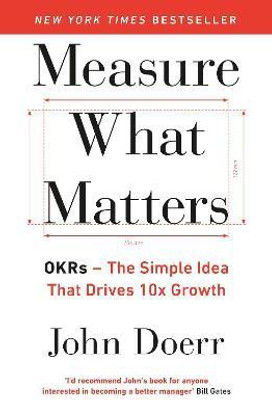
Get notified when this item comes back in stock.
Refactoring : Improving the Design of Existing Code (English, Paperback, Fowler)
Share
Refactoring : Improving the Design of Existing Code (English, Paperback, Fowler)
4.5
78 Ratings & 8 Reviews₹425
₹850
50% off
Sold Out
This item is currently out of stock
Highlights
- Language: English
- Binding: Paperback
- Publisher: Pearson
- ISBN: 9788131734667, 8131734668
- Edition: 2010
Seller
Mittal Books
4.1

Seller changed. Check for any changes in pricing and related information.
- 7 Days Replacement Policy?
See other sellers
Description
Refactoring is about improving the design of existing code. It is the process of changing a software system in such a way that it does not alter the external behavior of the code, yet improves its internal structure. With refactoring you can even take a bad design and rework it into a good one. This book offers a thorough discussion of the principles of refactoring, including where to spot opportunities for refactoring, and how to set up the required tests. There is also a catalog of more than 40 proven refactorings with details as to when and why to use the refactoring, step by step instructions for implementing it, and an example illustrating how it works The book is written using Java as its principle language, but the ideas are applicable to any OO language.
About The Author
Martin Fowler is an independent consultant who has applied objects to pressing business problems for more than a decade. He has consulted on systems in fields such as health care, financial trading, and corporate finance. His clients include Chrysler, Citibank, UK National Health Service, Andersen Consulting, and Netscape Communications. In addition, Fowler is a regular speaker on objects, the Unified Modeling Language, and patterns.
Kent Beck consistently challenges software engineering dogma, promoting ideas like patterns, test-driven development, and Extreme Programming. Currently affiliated with Three Rivers Institute and Agitar Software, he is the author of many Addison-Wesley titles.
Table Of Contents
About The Author
Martin Fowler is an independent consultant who has applied objects to pressing business problems for more than a decade. He has consulted on systems in fields such as health care, financial trading, and corporate finance. His clients include Chrysler, Citibank, UK National Health Service, Andersen Consulting, and Netscape Communications. In addition, Fowler is a regular speaker on objects, the Unified Modeling Language, and patterns.
Kent Beck consistently challenges software engineering dogma, promoting ideas like patterns, test-driven development, and Extreme Programming. Currently affiliated with Three Rivers Institute and Agitar Software, he is the author of many Addison-Wesley titles.
Table Of Contents
- Refactoring, a First Example.
- Principles in Refactoring.
- Bad Smells in Code.
- Building Tests.
- Toward a Catalog of Refactorings.
- Composing Methods.
- Moving Features Between Objects.
- Organizing Data.
- Simplifying Conditional Expressions.
- Making Method Calls Simpler.
- Dealing with Generalization.
- Big Refactorings.
- Refactoring, Reuse, and Reality.
- Refactoring Tools.
- Putting It All Together.
Read More
Specifications
Book Details
| Publication Year |
|
Contributors
| Author |
|
Ratings & Reviews
4.5
★
78 Ratings &
8 Reviews
- 5★
- 4★
- 3★
- 2★
- 1★
- 54
- 19
- 1
- 0
- 4
5
Great book for oops
Some interesting insights into how to write good object oriented code. Highly recommended for people who know how to write code in java but want to learn how to improve code maintainability and quality
READ MOREAditya Keyal
Certified Buyer, Kolkata
Aug, 2016
0
0
Report Abuse
4
Value-for-money
One star less for paper quality
READ MOREMatheswaran Sagadevan
Certified Buyer, Bangalore
Nov, 2018
0
0
Report Abuse
5
Absolutely Refactored
Read this book, and still going through many of the examples given in there. It just gives you a new perspective to programming.
READ MOREKashinath Pai
Certified Buyer, Mangalore
Sep, 2015
0
0
Report Abuse
5
a very good book
if you want to understand the importance of good coding and how to design an application and maintain it then definitely read this book.
READ MORESumit Sinha
Certified Buyer, Bangalore
Sep, 2015
0
0
Report Abuse
5
Great Book
Great Book. Excellant Content Very Useful for Programmer with mid experience
READ MOREPradeep
Certified Buyer
Apr, 2015
0
0
Report Abuse
5
Excellent book
I heard about this book from my colleague. After reading I say that, one can see lot of improvement while re-factoring the code. Again the language used in this book is also very simple to understand. MUST READ BOOK for technical guys...
READ MORERoshan Salvi
Certified Buyer
Oct, 2012
0
0
Report Abuse
1
The product was not delivered !!!
Flipkart did not deliver the product !!
Never expected such a worst deal from flipkart..................................................................
READ MORENever expected such a worst deal from flipkart..................................................................
Manu Manoharan
Certified Buyer, Bangalore
Jul, 2015
0
0
Report Abuse
1
Content of the books if good, but sadly got the duplicate print..
The seller "GoelsComputerHut" has sent me a duplicate copy, stay away from this seller.
The low rating is for this seller, not for the book.
This is a "pearson" book but the paper and print quality is worst.
From that only I figured out that the book is duplicate.
READ MOREThe low rating is for this seller, not for the book.
This is a "pearson" book but the paper and print quality is worst.
From that only I figured out that the book is duplicate.
Ashis Jena
Jan, 2015
0
0
Report Abuse
+
All 8 reviews
Be the first to ask about this product
Safe and Secure Payments.Easy returns.100% Authentic products.
Back to top




